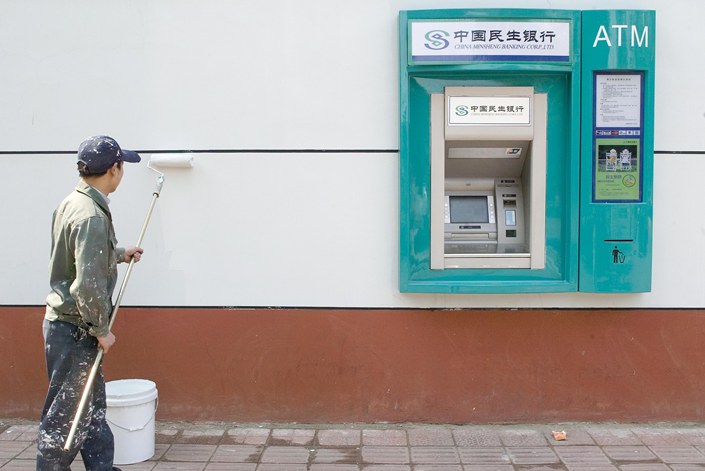
The price-to-book ratio of China Minsheng Banking Corp. Ltd. (600016.SH) is low compared to many of its peers, representing the market’s views toward the bank. Recently, Minsheng’s problems on both the asset and liability sides have gradually emerged. That means the market didn’t misjudge the bank.
Minsheng is the country’s first privately owned bank since the establishment of the People’s Republic of China, and at one point a flagship bank. Its recent precipitous descent is certainly a disappointment for those who are familiar with it.
It goes without saying that Minsheng needs an overhaul, but before it does that, it needs to figure out what led to its current state. Is it the economic slowdown that slowed its business expansion? Is it its own mistakes in strategy and management that led to its operational failure? Or does it have to do with what people in and outside the bank have speculated about: some shareholders and people in power prioritized their personal interests above corporate interests, damaging its risk control system?
Objectively speaking, the above three factors can all be the reasons to varying degrees.
First, the economic cycle and the external environment are beyond a bank’s control. But no matter how the environment evolves, a bank can still find ways to cope.
Second, Minsheng had flawed management and strategy implementation. It’s hard to imagine Minsheng, which had been regarded as a leading joint-stock bank for years, had a flawed risk control mechanism for credit approval that lagged behind that of many peers. It has until recently improved the system.
The third factor is the most critical reason, to which Minsheng should face up. In recent years, Minsheng’s governance structure has changed. The subtle balance once reached between its shareholders and senior management has been broken, and the power structure has been reshaped. Its management flaws were obscured when its business grew rapidly, but now, these problems have been fully exposed amid the economic slowdown. Corruption and internal power struggles probably are the deeper causes of its current difficulties.
Read more In Depth: Major Evergrande Creditor Faces Wave of Bad Loans
To encourage healthy corporate governance, Minsheng should start from the roots, that is, to rectify problems caused by its shareholders and clean up illicit related-party transactions. A bank should not become an ATM of its shareholders. Minsheng should resolutely remove the shareholders who embezzled the bank’s funds or interfered with its personnel appointments. It should make a clear and stable strategic and development plan, introduce a team of professional managers, and establish a clear evaluation system with proper incentives and constraints. The bank should never allow employees to draw high salaries without taking any responsibility at work.
For the current asset-side losses, Minsheng should identify the causes and take proper measures to rectify the problems. If instances of corruption are identified, it should strictly investigate the cases and hold wrongdoers accountable.
To sum up, the core of Minsheng’s rebirth should revolve around the personnel issue and corporate culture.
Ling Huawei is managing editor of Caixin Media and Caixin Weekly.
This article has been edited for length and clarity.
Contact translator Tang Ziyi (ziyitang@caixin.com) and editor Bertrand Teo (bertrandteo@caixin)
Get our weekly free Must-Read newsletter.







